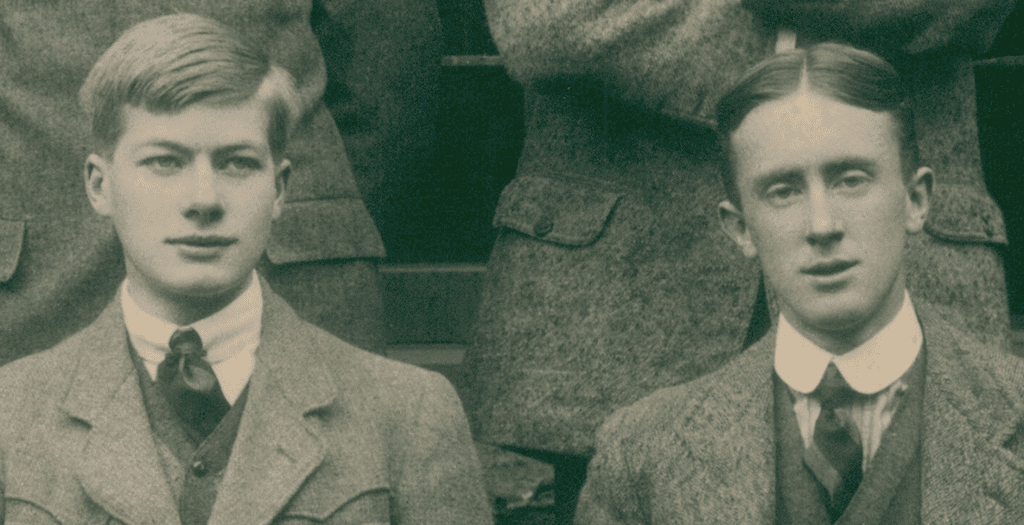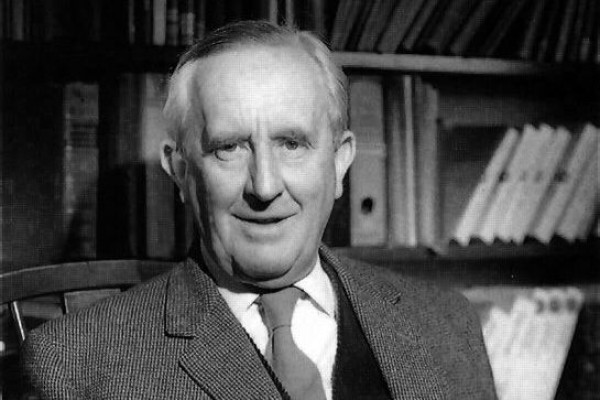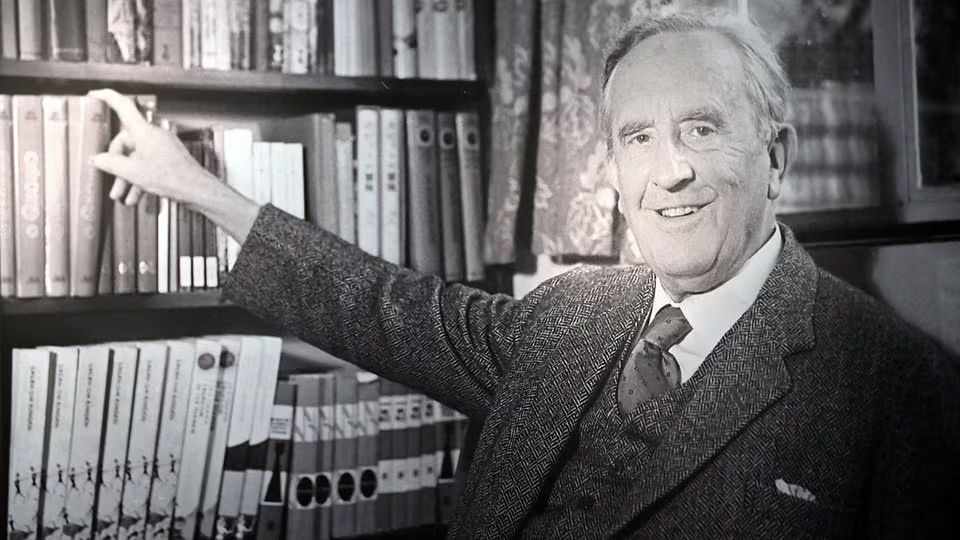Long before hobbits walked the Shire and elves spoke Quenya beneath the trees of Lothlórien, J.R.R. Tolkien was quietly working on something far more grounded but equally magical in its own way. In 1919, just after the devastation of World War I, a young Tolkien returned to Oxford not as a writer or professor, but as a lexicographer someone who helps write and edit dictionaries.
Yes, before he became the father of modern fantasy literature, Tolkien was part of the team responsible for compiling the Oxford English Dictionary (OED), one of the most important linguistic projects in history. His work there wasn’t just a job it was a formative experience that would echo through every word, name, and invented language in the sprawling world of Middle-earth.

A Language Lover at Heart
Even as a child, Tolkien was fascinated by language. He loved the sound of Welsh, the structure of Latin, and the poetic rhythm of Old English. By the time he reached adulthood, he could read and write in multiple languages, including Gothic, Finnish, and Old Norse. He didn’t just study them—he cherished them. For Tolkien, languages weren’t just tools for communication. They were living things with soul, history, and mystery.
So when the Oxford English Dictionary needed help after World War I, Tolkien was a natural fit. At just 27 years old, he joined the OED’s staff, assigned to the letter “W.”

What Tolkien Did at the OED
At the OED, Tolkien worked on a specific section words beginning with the letter W. This might seem narrow, but it gave him the opportunity to dive deep into etymology, the study of word origins. He focused on words like “waggle,” “walrus,” and “waistcoat,” tracing their roots back through centuries of linguistic evolution.
Video:
Tolkien naming his characters
This job wasn’t glamorous. It involved hours of poring over ancient texts, comparing meanings across time periods, and documenting subtle changes in usage. But for Tolkien, it was pure joy a deep dive into the very bones of the English language.
His background in Old English, Gothic, and Germanic languages made him especially valuable. He could understand how a word transformed over time, how its pronunciation shifted, and how its meaning was shaped by culture and conquest.
From Dictionary to Elvish
While Tolkien’s stint at the OED lasted only about two years, its impact was profound. Working on the dictionary sharpened his precision with language and gave him a deeper appreciation for the richness of English and its linguistic relatives. This meticulous attention to words and meanings would become a hallmark of his writing.
Later, as he created the world of Middle-earth, Tolkien developed entire languages from scratch Sindarin, Quenya, the Black Speech of Mordor all of which reflected real-world linguistic structures. His Elvish tongues weren’t just random syllables; they followed internal rules of grammar, syntax, and sound evolution that mirrored the depth and complexity of real languages.
Without his background as a lexicographer, it’s hard to imagine Tolkien building such convincing and immersive languages. And without those languages, Middle-earth wouldn’t feel nearly as alive.

A Hidden Legacy
Today, Tolkien is remembered mainly as the author of The Hobbit and The Lord of the Rings, not as a dictionary editor. But the truth is, his early work on the OED helped shape his worldview as much as any epic quest.
Video:
J. R. R. Tolkien vs George R. R. Martin. Epic Rap Battles of History
He once said, “The invention of languages is the foundation. The ‘stories’ were made rather to provide a world for the languages than the reverse.” That philosophy was born, at least in part, in the quiet offices of the Oxford English Dictionary project.
There, surrounded by dusty volumes and ancient words, Tolkien developed the tools he would later use to build an entire universe not just its creatures and landscapes, but the very sounds they used to speak.
Conclusion
Before he became the literary giant who redefined fantasy, J.R.R. Tolkien was a man of letters in the most literal sense. His contributions to the Oxford English Dictionary might seem like a footnote in his career, but they were actually a vital piece of the puzzle.
That time spent tracing the origins of English words taught him not just how language works but how it lives and breathes. It’s no wonder that Middle-earth feels so real. Its creator didn’t just imagine a world he built it from the roots of language itself.
So the next time you lose yourself in the world of hobbits and elves, remember: it all started with a man, a dictionary, and a deep love for words that refuse to be forgotten.



